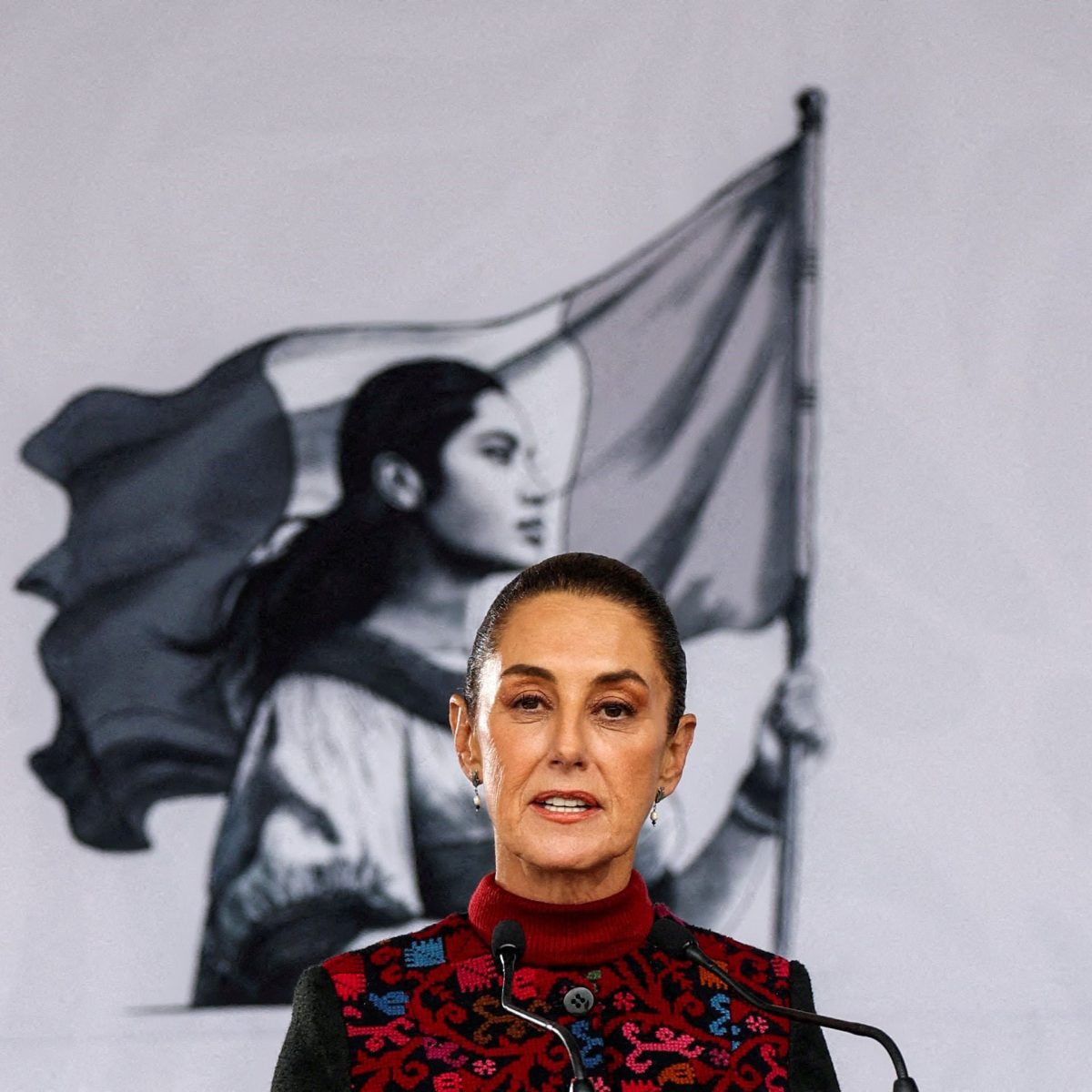MEXICO CITY, (Reuters) – Mexican President Claudia Sheinbaum said yesterday Mexico would retaliate if U.S. President-elect Donald Trump followed through with his proposed 25% across-the-board tariff, a move her government warned could kill 400,000 U.S. jobs and drive up prices for U.S. consumers.
“If there are U.S. tariffs, Mexico would also raise tariffs,” Sheinbaum said during a press conference, in her clearest statement yet that the country was preparing possible retaliatory trade measures against its top trade partner.
Mexican Economy Minister Marcelo Ebrard, speaking alongside Shein-baum, called for more regional cooperation and integration instead of a war of retaliatory import taxes.
“It’s a shot in the foot,” Ebrard said of Trump’s proposed tariffs, which appear to violate the USMCA trade deal between Mexico, Canada and the U.S.
Ebrard warned the tariffs would lead to massive U.S. job losses, lower growth, and hit U.S. companies producing in Mexico by effectively doubling the taxes they paid. “The impact on companies is huge,” he said.
The proposed tariffs would hit the automotive sector’s top cross-border exporters especially hard, Ebrard added, namely Ford F.N, General Motors GM.N and Stellantis STLAM.MI.
Ebrard noted that 88% of pickup trucks sold in the U.S. are made in Mexico and would see a price increase. These vehicles are popular in rural areas that overwhelmingly voted for Trump.
“Our estimate is that the average price of these vehicles will increase by $3,000,” Ebrard said.
Sheinbaum and Trump spoke by phone later yesterday, the Mexican president said on social-media platform X, adding the two discussed “strengthening collaboration on security issues” and that the conversation was “excellent.”
Trump has said the tariffs would remain in effect until the flow of drugs – particularly fentanyl – and migrants into the U.S. was controlled.
Sheinbaum added migrant caravans are no longer arriving at the U.S.-Mexico border “because they are attended to” in Mexico.
A caravan of several thousand migrants had been heading through southern Mexico but numbers have dwindled in recent days.
Many analysts regard Trump’s tariff threats as more of a negotiating tactic than trade policy.
“The lack of a clear link between this threat and questions related to trade suggests the new president plans to use tariffs as a negotiating strategy to achieve goals largely unrelated to trade,” said David Kohl, chief economist at Julius Baer.
Mexico’s automotive industry is the country’s most important manufacturing sector, exporting predominantly to the United States. It represents nearly 25% of all North American vehicle production.
Analysts at Barclays said they estimate the proposed tariffs “could wipe out effectively all profits” from the Detroit Three automakers.
“While it’s generally understood that a blanket 25% tariff on any vehicles or content from Mexico or Canada could be disruptive, investors under-appreciate how disruptive this could be,” they wrote in a note on Tuesday.
Brian Hughes, a spokesperson for Trump’s transition team, said the tariffs would protect U.S. manufacturers and workers from “unfair practices of foreign companies and foreign markets.”
Hughes said Trump would implement policies to make life affordable and more prosperous for his country.
GM and Stellantis declined to comment. Ford did not comment on how the threatened tariffs would affect its business but said it manufactures more vehicles in the United States than most major automakers.
Mexico’s automotive industry group AMIA said it would prepare for any possibility and wait to see what formal actions are taken.
The Institute of International Finance, a trade group for the global financial services industry, warned Mexico-U.S. relations would be challenging going forward.
“The imposition of tariffs, eventually leading to increased protectionism, and other policies affecting exchange rates and commodity prices could have significant implications for the region,” it said in a note.
The USMCA is up for review in 2026.
Katia Goya, director of international economics at Grupo Financiero Banorte, said it was likely the three USMCA countries would seek wholesale renegotiation of the pact rather than just rubber-stamp it to continue in its current form.
“The effect of a trade-conflict situation is that it will mean lower economic growth in the United States, higher unemployment and higher inflation,” Goya said.
Ebrard said USMCA trade amounted to $1.78 trillion in the first nine months of this year.
“We can fragment and divide with tariffs,” Ebrard said. “Mexico does not want conflicts and divisions, but to build a stronger region.”









